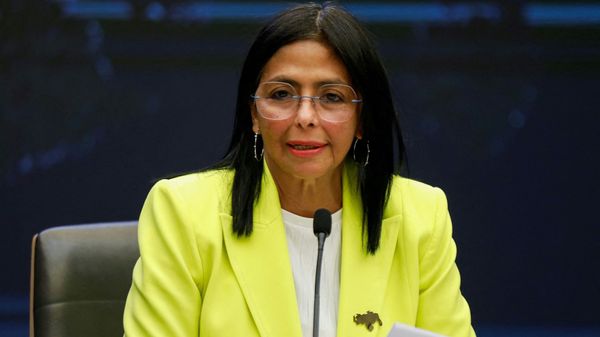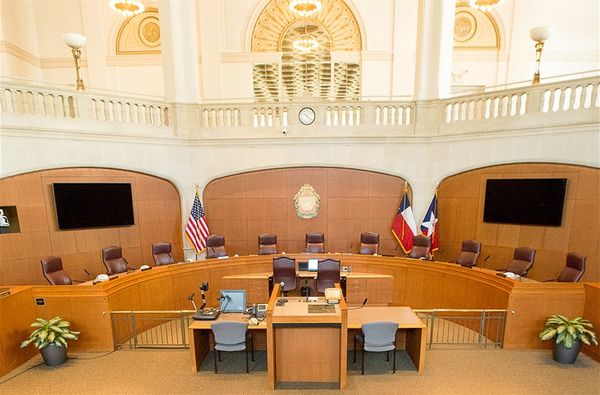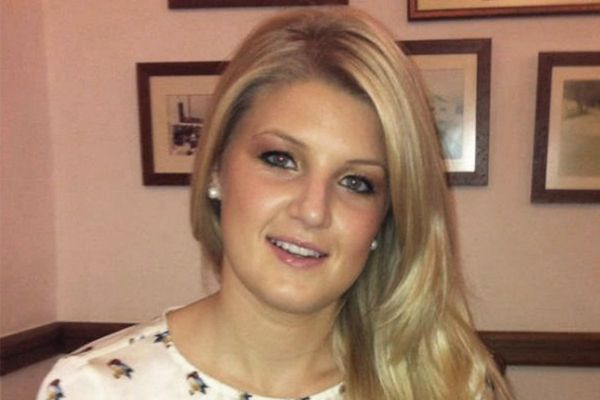We were just about done setting up for our workshop at the San Benito Cultural Heritage Museum when Hector Ruiz, president of the South Texas Equality Project (STEP), walked in. STEP is a coalition of diverse groups that celebrate and advocate for the LGBTQ+ community in the Rio Grande Valley.
“Friend!” I rushed over to him. “Qué gusto verte.”
“Girl,” he playfully replied as he leaned in closer for a hug. “This is one of five queer events I’m going to today. Let’s pray I can make it!”
From the museum, we were equidistant from two key political events that had occurred that week: Forty miles to the East, an explosion after yet another failed SpaceX test in Boca Chica, and 40 miles to the West, Senator Bernie Sanders packed a McAllen event center as part of his “Fighting Oligarchy” tour.
In the Valley, we are no strangers to being the backdrop of political power wars. From Elon Musk’s land-grab to Donald Trump and Greg Abbott’s power-grab, border residents are constantly cornered with restrictive narratives that capture the imagination of Americans across the nation. With frames meant to reduce our stories and humanity, we’re often made out to be these powerless one-dimensional caricatures that don’t know any better and can’t advocate for ourselves.
But as we celebrate Pride Month, I am struck by the contrast of what I know to be true about this region and what the popular narratives may be—behind the curtain of these filters imposed by outsiders, the Valley boasts an abundance of creative, powerful, and joyful communities, one of them being the LGBTQ+ community.
Starting in Brownsville, a short drive from Musk’s SpaceX, you can find a thriving network of queer business, advocacy, culture, and nightlife. Take Shop JZD, a queer-owned Latina lifestyle brand headquartered in downtown Brownsville that in April revealed a prestigious collaboration with Brooks, the iconic running shoes brand. Down the street from their store, you can find Bar-B, an LGBTQ+ bar that hosted a Pride flag-raising event on the first day of Pride Month with the support of the city commission’s LGBTQ Task Force established in 2019. And, if you’re lucky, you might run into Emmy award-winning star Lushious Massacr during one of her famous
“dragvestigations” where she masterfully blends pop culture and timely political perspectives.
That’s not to say that the area doesn’t also actively engage in direct advocacy. Earlier this year, a group of trans leaders pushed Democratic Congressman Vicente Gonzalez to meet with us and address his transphobic rants after Trump’s re-election. After gathering more than 300 petition signatures condemning his remarks, we confronted the congressman in a virtual meeting where he listened to his constituents’ personal stories and the impact his remarks have on the lives of trans individuals.
Then we head East to the San Benito and Harlingen area. Raised in San Benito, Jade Perez was just crowned Miss Gay USofA 2025 in one of the most important and respected drag pageants in the United States. In Harlingen, creative queer-owned businesses like ENTRE Film Center and Cactus Valley Art provide spaces for artistic expression, community building, and workshops. And a few minutes down the highway in La Feria, you will find Mount Calvary Christian Church, a trans and queer-led church, a rare beacon of hope for faith and spirituality for our South Texas community.
In San Juan, La Unión del Pueblo Entero (LUPE) is hosting its second annual Pride celebrations. LUPE, founded by labor rights leaders Cesar Chavez and Dolores Huerta, is a legacy organization from the farmworker and Chicano civil rights movement of the ’60s and ’70s. Earlier this month, the group hosted a panel in Spanish with local trans leaders to discuss identity and advocacy. With an audience composed of mainly older working-class immigrants, it made for a unique space that challenged LUPE’s members to have critical conversations and build solidarity across differences.
The truth is, we could go city by city in the Valley sharing its historic and present significance to the LGBTQ+ community. Even in the westernmost rural part of the region, in Starr County, the Roma High School Inclusion Club, formerly known as the Roma High School Gay-Straight Alliance (GSA), is actively organizing. To add to its cultural impact, the Roma GSA founder, Frank Garcia, eventually went on to compete in the primetime show The Voice.
Many might find themselves surprised at the abundance and depth of the LGBTQ+ community in the Rio Grande Valley, and this just scratches the surface. There’s a long list of craft groups, book clubs, running clubs, and so many other initiatives that have made for an event-filled Pride Month. Projects like Pansy Pachanga have served to provide important historical context to the long-standing presence of queer and trans people on the border, and organizations like the South Texas Equality Project, GenTex,
and Under the Umbrella guide us to fight for the present and envision a more inclusive future for the politically contested region.
While we might not be the biggest in terms of population compared to other Texas metro areas, it is an undeniable fact that the LGBTQ+ community of the Rio Grande Valley is a shining example of grit, resistance, and joy—especially as we see the rise of aggressive anti-democratic practices from the state and federal government.
With billionaires and power-hungry politicians in every corner of our region trying to gain at our expense, we dare to exist beyond the headlines and define ourselves for ourselves—one drag show, one support group, and one protest at a time.







